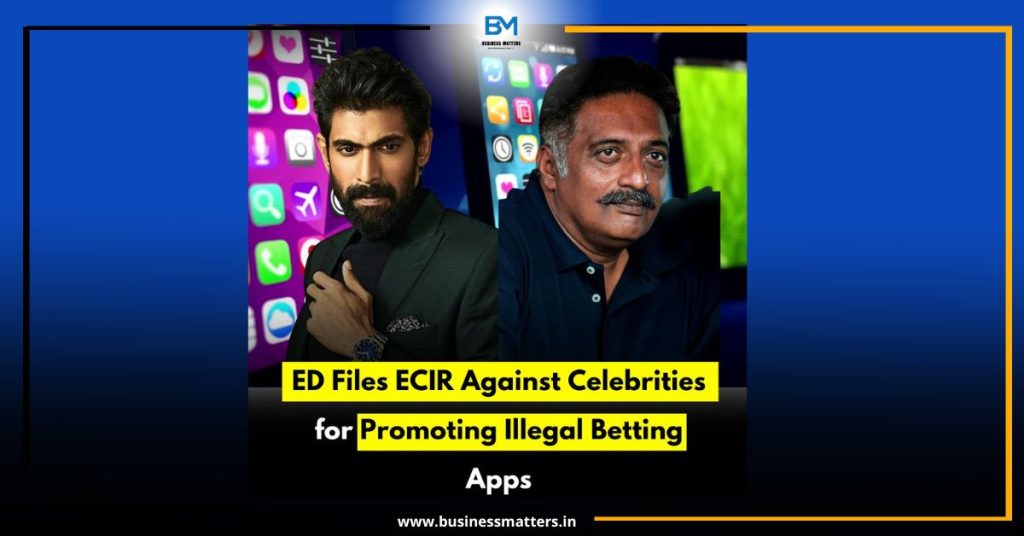In a significant crackdown on the growing menace of online betting and gambling, the Enforcement Directorate (ED) has reportedly filed an Enforcement Case Information Report (ECIR) against 29 individuals, including prominent actors such as Rana Daggubati, Prakash Raj, Vijay Deverakonda, and several social media influencers and television personalities. The ECIR, which operates under the provisions of the Prevention of Money Laundering Act (PMLA), marks the initiation of a formal investigation into alleged money laundering activities connected to illegal betting platforms.
According to The Hindu, the ED’s action stems from at least five FIRs lodged across various cities in Andhra Pradesh and Telangana. The core of the case revolves around paid promotional activities conducted by these celebrities and influencers for several betting platforms including Junglee Rummy, A23, JeetWin, Parimatch, and Lotus365. These platforms have been operating under the guise of “skill-based” gaming but are now under intense scrutiny for allegedly facilitating illegal gambling and money laundering operations.
Read Also :- Jio Platforms Postpones IPO Plans to Focus on Business Growth and Core Expansion
The actors and influencers named in the ECIR are alleged to have received substantial payments in return for endorsing these platforms through their social media accounts, television appearances, and public events. These endorsements played a critical role in legitimizing and popularizing the platforms among a wide audience, thereby contributing to the spread of online gambling activities.
While many of these online platforms claim to be offering games of skill, the ED’s preliminary findings suggest that their primary model closely resembles gambling, which is prohibited under the Public Gambling Act of 1867. This has raised serious concerns about how these platforms circumvent existing legal frameworks by exploiting the skill-versus-chance loophole, often misleading users and regulators alike.
The involvement of high-profile public figures has intensified the debate around the ethical responsibilities of celebrities and influencers in advertising. Legal experts point out that under current Indian law, promoting illegal activities — even inadvertently — can result in criminal liability if it leads to public harm or abets unlawful financial transactions. Moreover, financial compensations received for these promotions may fall under proceeds of crime if the services endorsed are found to be illegal.
The ED is now investigating whether these earnings were routed through legitimate banking channels or involved hawala transactions or other methods of money laundering. The agency has begun issuing summonses and is expected to record statements from the accused individuals in the coming weeks.
This development comes at a time when regulatory authorities and state governments are under increasing pressure to introduce clearer guidelines for online gaming and gambling. Several states have already imposed partial or complete bans on online betting platforms, citing their addictive nature and financial risks to users.
As the probe deepens, this case could set a precedent for how promotional accountability is addressed in the digital and entertainment sectors. It also signals a broader crackdown on financial crimes linked to the rapidly expanding but loosely regulated online gaming industry in India.


